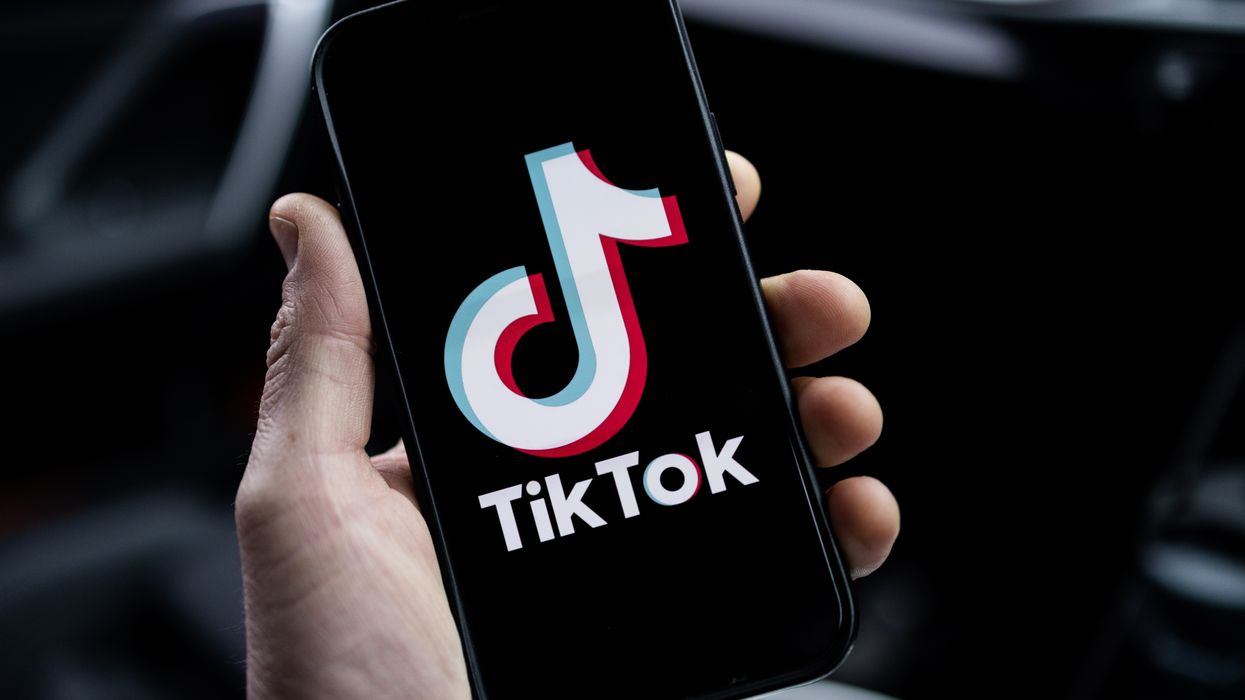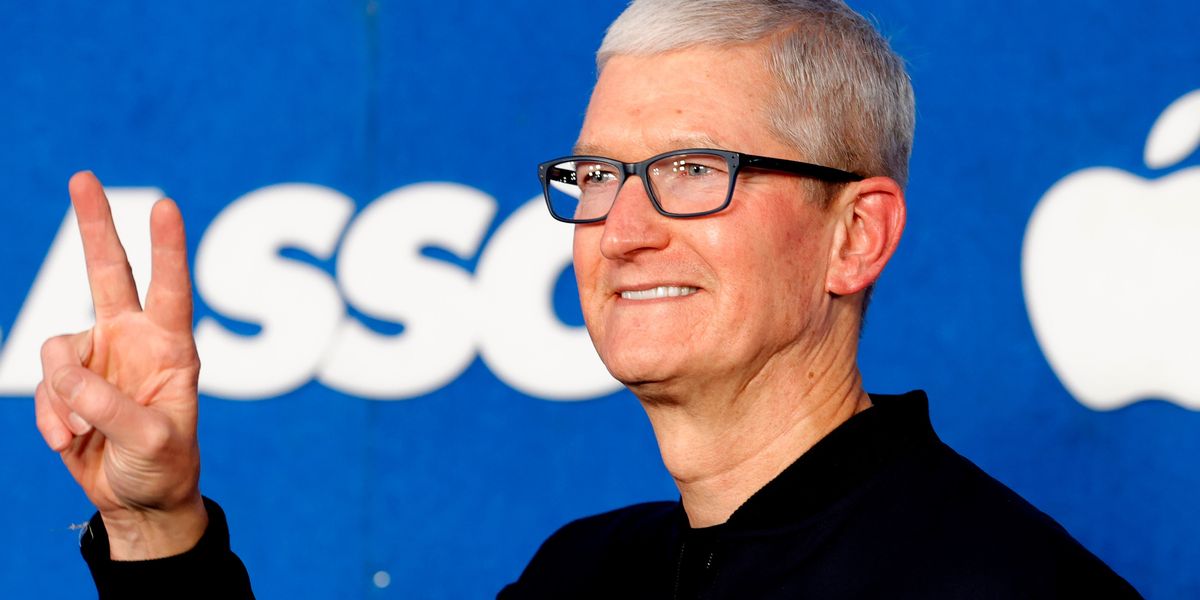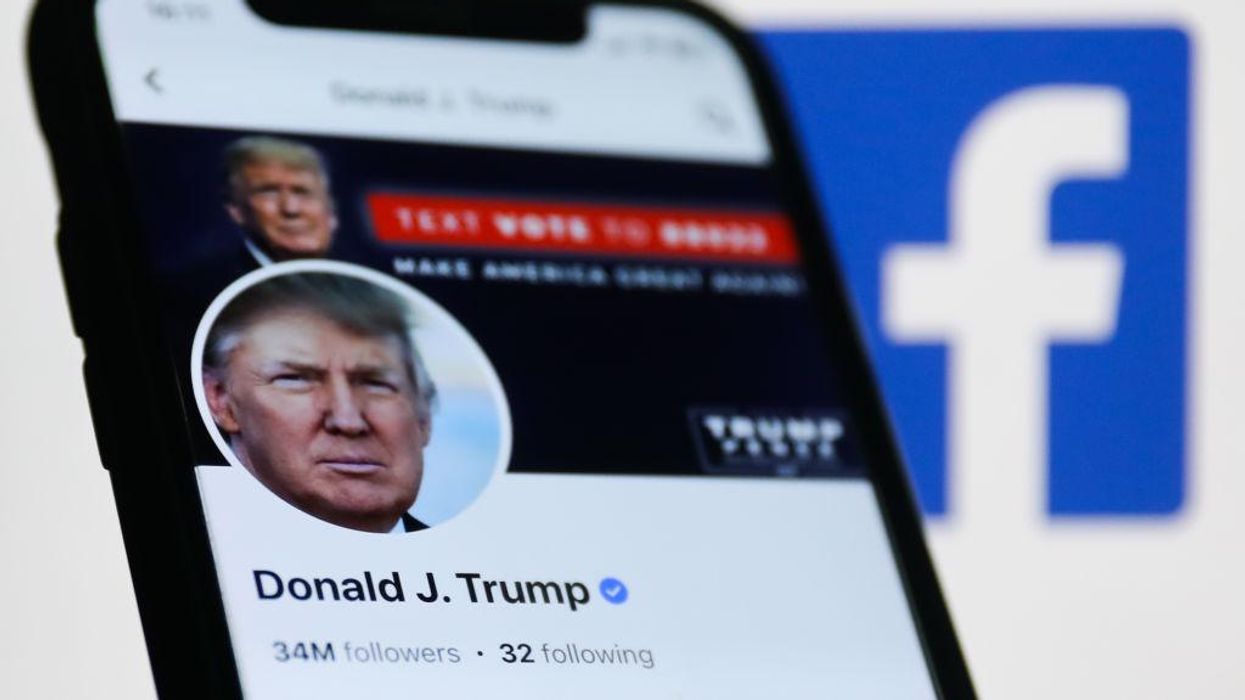Few products create the kind of excitement and anticipation of the iPhone. So when Apple recently announced the 14th generation of this product (along with new versions of its iconic Airpods Pro and Apple Watch wearable accessories), many enthusiasts and tech-focused media outlets were giddy with anticipation. One particularly excited tech columnist described it as “the world’s most iconic product.” This excitement is why some have termed this time of year to be “Techtober” — when the iPhone and other tech products are released in time for the holiday spending rush.
Apple, the world’s first $3 trillion company, is a global behemoth. Still, the adoration Americans have for the iPhone remains something of an outlier. Globally, Apple has about 18 percent of the smartphone market share, trailing Samsung and facing stiff competition from companies like Xiaomi. In the United States, however, Apple has more than 50 percent of the market share, despite iPhones starting at a higher price point than its competition.
Most notable is Apple’s domination of younger demographics. Among U.S. teenagers, according to a 2021 report, 88 percent use an iPhone and 90 percent plan to buy one as their next phone. This was up from 17 percent ownership a decade earlier. For American teenagers, the iPhone is to mobile phones what Google is to search engines or Kleenex is to tissue paper. It has become so trendy that, according to a Wall Street Journal report, non-iPhone users are being bullied and isolated in U.S. schools for having the dreaded “green bubbles” that denote an Android user on group messages. (Android is an open-source operating system, developed by Google and used by most of the world’s smartphone manufacturers.)
This kind of domination of the market share — as well as of the culture more broadly — gives companies tremendous leverage to engage in conduct that, while profitable, can be destructive. Apple has contributed to declines in consumer rights and repairability of products, electronic waste (e-waste) and environmental degradation (an especially acute problem when it comes to Airpod headsets), privacy concerns, the use of forced labor across the world, and a culture of bullying and elitism in schools.
Apple’s Dubious Environmental Claims
In 2020, Apple made headlines by announcing it was going to remove the charger from the box of all new iPhones, undermining many decades of the expectation that when you spent a considerable amount of money on a piece of consumer electronics, it would come with all the necessary parts to actually use it.
This decision saved Apple over $6.5 billion over the next 18 months. Yet, Apple executives alleged they were not doing this out of self-interest. Rather, they claimed, it was a benevolent policy aimed at preserving the environment.
Naturally, many were suspicious of Apple’s claims or frustrated as consumers. Some governments, including France and Brazil, have passed laws forcing Apple to include such accessories. By not including the charger, the company would punt its carbon footprint onto consumers, who would have to buy chargers as an add-on from Apple or third parties — using much more packaging. Conveniently, at this time Apple introduced its own proprietary solution for charging their phones using a magnetic adaptor called Magsafe, which iPhone users can add to their purchase for a fee.
Still, many Apple enthusiasts and friendly tech media outlets, some of which benefit financially when consumption of these products is high, parroted this claim with little skepticism. This group of “Apple sheep” as they are sometimes called (meant as a pejorative initially, but often worn as a badge of honor) were quick to defend the company.
While Apple was initially ridiculed by competitors for these practices, many — including Samsung, Google and Microsoft — quickly adopted the policy of selling phones without chargers. This further shows how Apple’s controversial decisions become industry-wide trends.
Apple made a similarly provocative decision four years prior, when the company announced it would be removing the 3.5 mm headphone jack from iPhones. Apple claimed it took “courage” to remove this port, which has been a low-cost universal standard for decades. Similar to the charger, other manufacturers removed this port in due course.
The same year Apple introduced its own proprietary headset called Airpods. The product soon became a symbol of social status, wealth and fandom. Apple has since sold more than 150 million units of this product (or newer variants).
Yet, these products are “impossible to repair or recycle” and will be clogging up landfills for a thousand years, long after every current iPhone user is dead. The environmental impact of these “fossils of capitalism” were described in Vice in 2019 as a “tragedy” and an “environmental disaster.”
“They’re physical manifestations of a global economic system that allows some people to buy and easily lose $160 headphones, and leaves other people at risk of death to produce those products,” wrote Caroline Haskins in 2019.
These two case studies are telling. They show that Apple not only causes harm to the environment when there is profit to be made, but will also do so under the mantle of “green” corporate behavior, when convenient. And because so much of the U.S. tech media infrastructure is dependent on the growth and goodwill of loyal Apple fans, much of it is overlooked or explained away.
“Buy Your Mom an iPhone”: Apple vs. Universal Standards
As with the 3.5 headphone jack, there are many benefits for consumers and the environment when companies widely adopt universal standards. In recent years, there has been near-universal adoption of USB-C as the primary port for electronic devices and smartphones. This is why a consumer can use the same charger to power up a laptop, phone, controller, tablet and so on. In addition to saving consumers money and time, this also leads to a significant reduction in electronic waste.
Apple was vigorous in opposing this effort for years and continued to use the slower, proprietary charging port called the lightning cable on every iPhone, and some other Apple accessories. This gave Apple a cut from any accessories sold from third parties that use the port.
The European Union was tired of waiting for Apple to voluntarily adopt USB-C. In June 2022, the EU passed a bill making USB-C a “common charger.” On October 4, this deal was finalized. This means by 2024, every consumer electronic device, including iPhones, must include a USB-C port, avoiding potentially thousands of tons of e-waste.
That is a huge market Apple will not want to abandon. While it’s possible different iPhones could be manufactured for Europe, this would hurt Apple’s manufacturing efficiency. Reports from supply chain analysts suggest Apple is preparing to make the switch globally, possibly in 2023, for the iPhone 15.
Another example of Apple refusing to adopt universal standards is with messaging apps and communication between Apple and non-Apple devices. Apple’s critics point out that any message between Apple and Android devices default to the dated and less secure SMS standard. There are universal solutions, such as RCS (Rich Communication Services), which would allow for more secure, modern messaging between iPhones and other platforms, but Apple has refused to adopt them.
On September 7, a reporter asked Apple CEO Tim Cook why he can’t send a reasonable picture to his mom, an Android user. Cook flippantly gave him the expensive advice to go “buy your mom an iPhone.”
This problem is also uniquely American, as in the rest of the world, most users communicate through third-party messaging apps, such as WhatsApp or Messenger.
The “Least Repairable” Flagship Phone: Apple vs. Repairability
Shortly after the release of the iPhone 14, Hugh Jeffreys, a repair-shop owner and YouTube content creator, made a video of himself taking apart the phone and replacing some of the parts to test its repairability. Repairability is not only important for consumers, but is also an important way to eliminate e-waste. Reports show there was an estimated 57.4 million metric tons of e-waste globally in 2021 alone.
Jeffreys’s frustration mounted as he learned that when he tried to replace one iPhone camera or battery with the official Apple part from the other identical iPhone, it would result in many of the phones primary features breaking. The Face-ID unlock mechanism was gone, the front-facing camera no longer worked, and a host of other features were either absent or ineffective. Jeffreys noticed many other obstacles to self- or third-party repair, but even these obstacles were unpredictably applied and could change radically from a software update.
Apple, he deduced, has effectively made fixing these devices so difficult that no one would reasonably even try to do it themselves.
Apple has (once again) built the “least repair-friendly flagship smartphone” on the market, Jeffreys said in his video. “I might have spent $3,000 on these phones, but I feel as though they are not really mine.”
These are not new issues. Jeffreys made a similar video about the iPhone 12 and iPhone 13, which had similar restrictions. And many others who have tried to make a career in repairing consumer electronics have bemoaned Apple’s increasing hostility to repair. Louis Rossmann of the Rossmann Repair Group has garnered more than 1.5 million subscribers and built an organization called the “Repair Preservation Group” due to his advocacy of the issue over the years.
This effort has spearheaded the growth of a movement that has come to be called the “right to repair” or “right to own,” which has gained traction in the public consciousness. Large tech channels on YouTube have come out in favor of the movement. The Biden administration issued an executive order on the issue in July 2021. This was in response to a Federal Trade Commission report on the subject which said the excuses of manufacturers limitations on repair “are not supported by the record.”
Similar movements are fighting anti-repair policies in the automotive, medical device and agricultural industries. In Massachusetts, a ballot referendum on automotive right to repair passed overwhelmingly in 2020. But other efforts to push legislation against anti-repair policies have largely been delayed, destroyed or weakened considerably in the face of the massive lobbying arm of Big Tech like Apple.
Additionally, winning these battles can be a challenge when huge swatches of the younger generations deify a company like Apple. “I tried pointing this out for a decade,” Rossmann said in a response to Jeffreys’s video. “It’s sad, but nobody cares.”
iPhone and the Future of Online Media and Software
Apple’s serious issues regarding consumer rights, the environment, repairability and more are worrying in 2022. But there is genuine concern that if its dominance continues, things could become much worse in the coming decades, especially as society transitions away from more traditional computers (which, unlike Apple’s operating systems on iPhone and iPad, allow for sideloading of software and apps that aren’t officially approved by Apple or Microsoft) and rely more on Apple’s closed mobile operating systems.
The good news is some progress to try and force Apple and other tech manufacturers to change their most anti-consumer tactics. The European Union has passed the Digital Markets Act, which could force Apple to allow consumers to download non-Apple approved software, and support functionality between messaging apps, among other consumer rights protections. There is also a vibrant open-source software community dedicated to making software that is open to the public and not controlled by corporations.
In the United States, however, there is much less progress for these kinds of reforms. As a younger generation of American activists and thinkers start holding elected offices, and creating new media outlets, services, businesses or software, they may find themselves limited by a proprietary, corporate walled garden they inadvertently helped create.
This post was originally published on Latest – Truthout.




